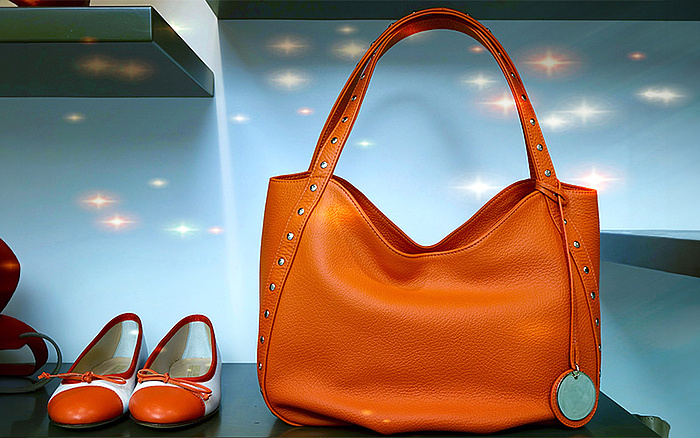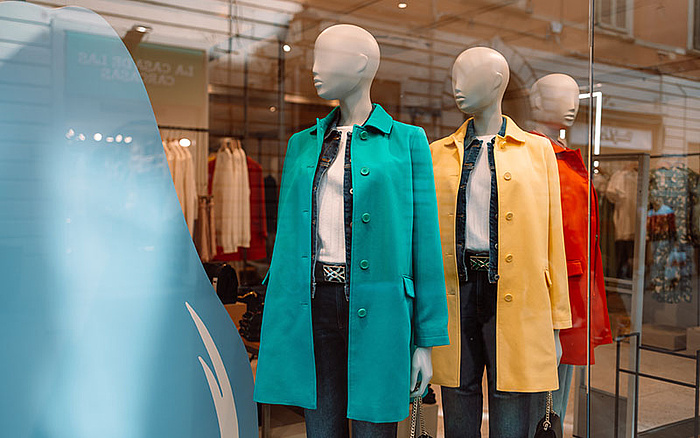
Preserving prestige: Intellectual Property challenges in the modern luxury goods industry
The luxury goods industry epitomizes cachet, creativity and craftsmanship, with brands fiercely protecting their Intellectual Property (IP) rights as core assets. However, in an era marked by rapid technological advancement and economic, social, environmental and ethical constraints, the IP strategies of the past will no longer suffice. The luxury goods sector must adapt to new challenges and safeguards to reinvent itself for today's uncompromising standards.
How economic concerns shape strategies
In a competitive marketplace, luxury brands face economic pressures to optimize resources while maintaining robust IP protection. For many, the solution begins with prioritization. Companies must focus on the most valuable and strategically important assets, often conducting IP audits to reallocate capital accordingly. There are also opportunities to strategically monetize underutilized properties to create new revenue streams and offset protection costs. This should be paired with cost-effective enforcement measures such as cease-and-desist letters and negotiated settlements that help prevent expensive infringement litigation.
However, success nowadays is perhaps less militant than in previous periods, emphasizing cooperation as well as competition. Brands willing to collaborate with industry peers, law enforcement agencies and IP rights organizations can multiply their strengths and spread costs, enhancing rights that benefit stakeholders across the value chain. Such partnerships also empower broad initiatives to combat counterfeiting and piracy.
Cybercrime and IP protection
Although brand cooperation helps address many forms of cybercrime, the reality is that these issues will persist as long as the digital realm itself exists. Advanced manufacturing techniques and online marketplaces enable counterfeiters to replicate luxury goods with alarming accuracy, making it increasingly difficult for both consumers and brands to identify fake products.

A keen eye can discern a close forgery in person, but online shopping removes the chance to inspect a product before making a purchase. The remoteness of these counterfeiters only serves to shield their activities and disadvantage buyers.
Moreover, the anonymity and global reach of online platforms exacerbate the problems of enforcing IP rights. Luxury brands must navigate a complex web of jurisdictional issues and legal frameworks to combat counterfeiters operating across international borders. While takedown notices and legal actions against infringing sellers are common strategies, they are reactive rather than proactive solutions.
Some difficulties in this area can be ameliorated through consumer education. Luxury brands can engage in information campaigns and outreach programs to raise awareness about the economic, social and safety implications of purchasing counterfeit products. Such efforts pair nicely with transparent communication about brand values and craftsmanship, reinforcing the intrinsic value of authentic luxury goods. This does not just promote fairer markets – it also highlights the contribution of IP rights to ongoing innovation.
In this way, the digital world can be a blessing and a curse, facilitating both dishonest commerce and genuine business in a single stroke. However, technology's influence on luxury IP considerations does not stop here.
Innovative technologies: Balancing risks and rewards
The role of technological advancements in luxury goods is still taking shape, and not always with positive connotations. For example, blockchain technology offers potential solutions for supply chain transparency and authentication; on the other hand, 3D printing raises concerns about the ease with which unauthorized design reproductions can be made. Brands need to take advantage of technology-enabled IP opportunities while mitigating the risks – a delicate balancing act with the rules still being written.

Exclusivity is a word almost as important to luxury brands as it is to IP law. While fashion houses wish to cultivate the image of distinction, the IP system concerns itself with upholding the inviolability of creative rights.
Social responsibility in a fast-changing world
In addition to traditional IP dilemmas, luxury goods companies face growing scrutiny over social issues that increasingly influence consumer purchasing decisions and brand loyalty.
Although these topics range in complexity, most relate to how luxury brands treat the world and its people. For example, as creators seek inspiration from diverse customs and artisanal traditions, they must tread carefully to avoid accusations of exploitation or insensitivity – often referred to as cultural appropriation. Additionally, it may be necessary to carry out thorough due diligence to make sure that designs and branding elements do not infringe upon cultural IP rights. Consumers also expect a high level of corporate social responsibility, particularly in IP protection strategies that might otherwise be interpreted as overly "money-focused."
Many of the same rules apply to environmental considerations and sustainability. The goal for luxury brands is to maximize market shares and IP utilization while minimizing their impact on the natural world. This often begins with investing in research and development to identify sustainable materials and production processes that uphold product quality. This work pairs neatly with circular economy initiatives such as improving product lifespan and reducing waste.

Though pristine leathers and glossy wood finishes are natural, renewable materials, their consumption can still put pressure on the environment. Boutique manufacturers must strive to confirm ethical sourcing and preserve the earth's resources.
However, sustainability cannot be woven around IP strategies; it must be built in from the very beginning. Brands can develop products, packaging, designs and even new technologies that promote environmental responsibility from the inside out, ensuring that their offerings are just as "green" as their values and public commitments. After all, a company does not necessarily need to invent new solar panels or waste reduction technologies to contribute to environmental progress. IP rights can protect a huge variety of green innovations – from plastic-free packaging to a new slogan for a recycling campaign.
Creating a luxurious future with IP protection
As our world becomes increasingly interconnected and digitized, the luxury goods industry faces unprecedented challenges in protecting its IP rights. From the proliferation of counterfeit products on online platforms to ethical concerns surrounding cultural appropriation and corporate responsibility, brands must adapt their strategies to navigate this evolving landscape. The key is to adopt holistic approaches, integrating IP protection with better business practices.
The future of luxury goods aims to be smart, sustainable and secure; contact us today to find out how we can help make your IP portfolio the same.
Filed in

International brand owners in China need to be aware of new measures to address the abuse of the trademark system



